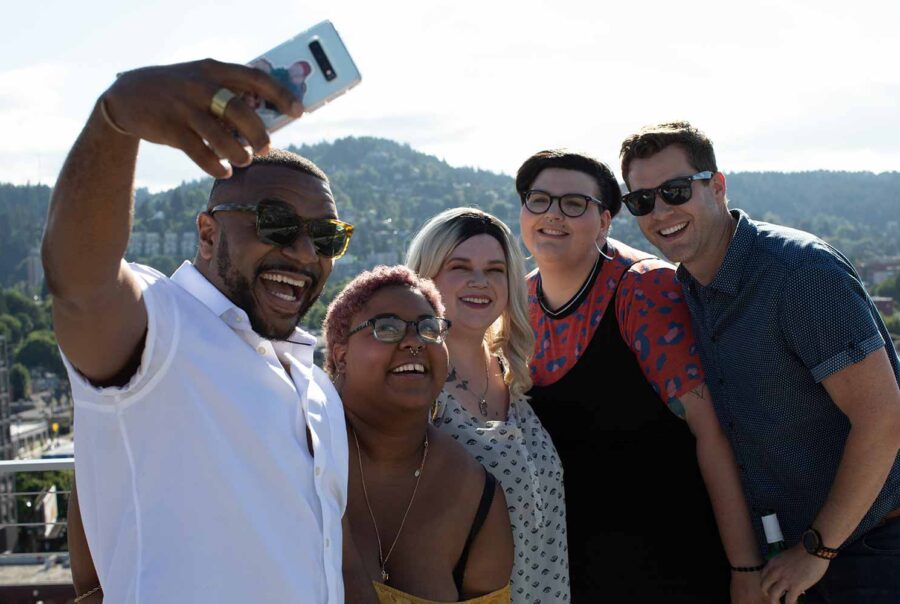Patient Diversity in Clinical Trials

Understanding racial, ethnic, and gender diversity in clinical trials.
Clinical trials are research studies used to determine if a new treatment, such as a drug or medical device, is safe and effective for humans. People volunteer as trial participants to help researchers answer these critical questions. While many factors go into a successful clinical trial, participant diversity is one of the most important aspects. In a clinical trial, diversity means recruiting people of all races, ethnicities, genders, and ages. A great clinical trial represents everyone! Here at Triad Clinical Trials, we understand this, which is why we have always prioritized diversity when planning, advertising, and conducting trials. Read on to learn more about diversity in clinical trials and why it is so important.
How diverse are clinical trials?
Historically, minorities have been underrepresented in clinical trials. For example:
- 12% of Americans are African American, yet they make up only 5% of clinical trial participants.
- 18% of Americans are Hispanic/Latino, yet they make up only 1% of clinical trial participants.
- 6% of Americans are Asian, yet they make up less than 2% of clinical trial participants.
Minorities’ lower participation likely occurs for a few reasons, including:
- Lack of trust: In the past, minority groups were victims of unethical treatment in medical studies. As a result, some people wonder if the same treatment could happen today. Absolutely not. Today, all participants are kept safe by laws and ethics committees that oversee clinical trials. Additionally, prospective participants are given all details about the study they’re considering, including all procedures and medications, potential risks, and benefits.
- Lack of resources: Some people might have circumstances that prevent them from participating in clinical trials. These might include a lack of access to a clinic, an inability to take time off work, travel expenses, or a lack of transportation. Fortunately, in addition to being free to the participant, many clinical trials include payment for time and travel. Employers will often grant leave time for participants, and most clinics will arrange ride-shares like Uber or Lyft as needed.
- Lack of information: Many people aren’t aware of the potential benefits of participating in clinical trials, including early access to groundbreaking treatments, expert care for their condition, and how clinical trials help others.
Why diversity is important in clinical trials.
There are a few key reasons why diversity matters in clinical trials:
1. People respond to treatments differently.
Race, ethnicity, age, and gender can all impact how people respond to the same medical treatment. In fact, differences in responses can be so extreme that the FDA sometimes recommends separate prescribing instructions. The more diverse a group of volunteers is, the more researchers can learn about how a potential treatment will affect different groups of people.
2. Certain diseases are more common in specific populations.
Recruiting volunteers from diverse backgrounds is especially important for clinical trials studying diseases or conditions that are more common in certain populations. For example, African American women are 20% more likely to have asthma than non-Hispanic white people. Suppose a clinical trial studying an asthma medication includes mostly non-Hispanic white men volunteers. The results won’t provide the most accurate information about how the medication will affect African American women due to a low number of participants in this group.
This is a problem because, as we mentioned earlier, people can react to medications differently based on their race, ethnicity, age, and gender. In other words, what works for a non-Hispanic white man might not work as well for an African American woman or vice versa. When trials include a diverse population, researchers can be more confident that the results apply to a broad range of people, including certain minorities that may need the treatments the most.
3. Diversity helps promote health equity.
Having racially and ethnically diverse clinical trial participants can help increase the understanding of treatments and diseases and how they affect certain populations. This can lead to more effective treatments and health care for everyone, including minorities. Minorities who participate in clinical trials can also help improve public perceptions and build public confidence about medical treatments. When others see and hear about participants who look like them, they may feel more comfortable receiving a lifesaving treatment or participating in a trial.
Lastly, diversity in clinical trials can help improve health equity by giving minorities access to groundbreaking new therapies and quality health care that they otherwise might not be able to receive.
Choose Triad Clinical Trials.
Triad Clinical Trials, which has been operating in Greensboro, North Carolina since 2007, prioritizes diversity. We often over-represent in the enrollment of two critical, traditionally overlooked demographics: women and African Americans. Our volunteer population is comprised of 65% women and 49% African Americans. Prioritizing diversity in our clinical studies helps ensure that more people receive the best care possible. It also helps move us closer to a more equitable healthcare system.
The Triad Clinical Trials staff takes extra care to ensure new research patients feel comfortable, safe and supported at all times. We take the time to answer any questions prospective participants have and expertly and compassionately guide them through the entire process. If you’d like to know more about participating in a clinical trial, consider signing up with Triad Clinical Trials today.
Reasons to participate in a clinical research study.
Helps Advance Research
Your participation can help provide us with important information to move forward.
Access New Treatments
Participating in clinical research offers you access to leading-edge medicines.
Possible Compensation
Some clinical research studies offer participants compensation for time and travel expenses.

